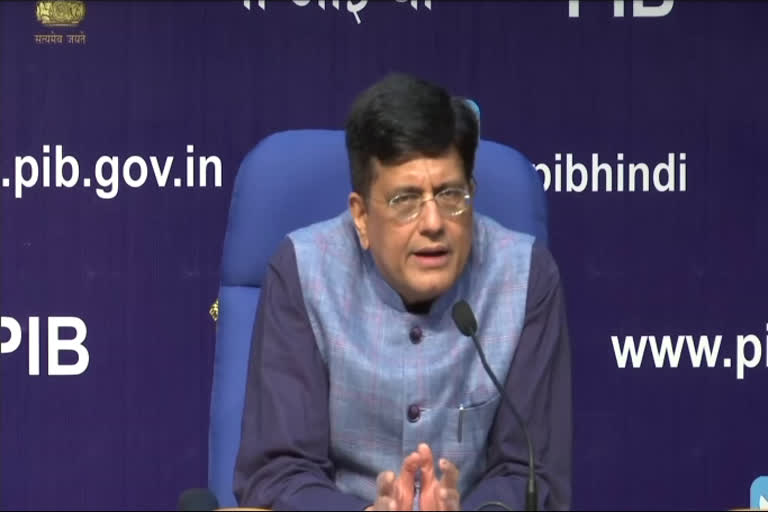New Delhi: India stood its ground at RCEP negotiations and in the national interest decided not to join the China-led mega-trade pact, said Commerce and Industry Minister Piyush Goyal on Tuesday.
Addressing a press conference a day after the conclusion of the Regional Comprehensive Economic Partnership (RCEP) summit in Bangkok, Goyal said Prime Minister Narendra Modi took a tough stand to protect the interest of the dairy sector, farmers and domestic industry.
The minister also hit out at the Congress party for criticising the government, saying it was the Manmohan Singh government that had initiated the discussions for making India part of the RCEP grouping, ignoring the fact that it had a huge trade deficit with the member nations.
The trade deficit with the RCEP grouping soared from USD 7 billion in 2004 to USD 78 billion in 2014.
The minister further said the Modi government was reviewing various FTAs signed by the Manmohan Singh government with South Korea and ASEAN with a view to safeguard the interest of the nation and pave the way for making India a USD 5-trillion economy.
India on Monday decided not to join Regional Comprehensive Economic Partnership (RCEP) over unresolved "core concerns".
Modi conveyed India's decision not to join the RCEP deal at a summit meeting of the 16-nation bloc at Bangkok.
A joint statement issued after RCEP leaders' summit stated that India has significant outstanding issues, which remain unresolved. All RCEP participating countries will work together to resolve these issues in a mutually satisfactory way. India's final decision will depend on satisfactory resolution of these issues.
China also said on Tuesday that it will follow the principle of "mutual understanding and accommodation" to resolve the outstanding issues raised by India for not joining the Beijing-backed RCEP.
"The present form of the RCEP agreement does not fully reflect the basic spirt and the agreed guiding principles of the RCEP. It also does not address satisfactorily India's outstanding issues and concerns. In such a situation, it is not possible for India to join the RCEP Agreement," Modi had said.
Read more: Finance Minister hints at booster dose for realty sector



